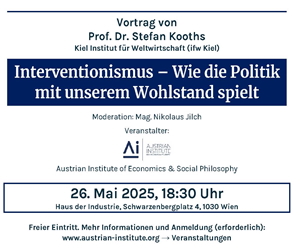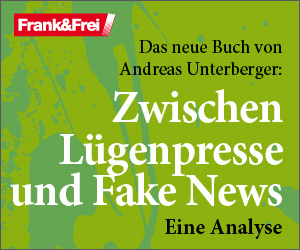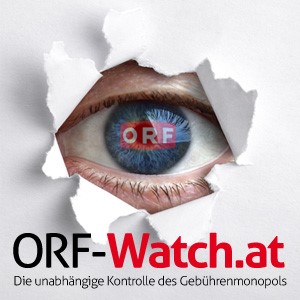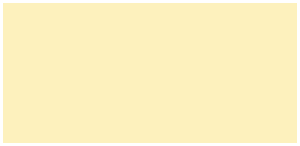This Tagebuch-comment was published in the worldwide read page "Gates of Vienna". It starts with an explanation and introduction.
Austria is currently in the throes of a major public debate about a proposed revamping of the Islam Law of 1912.
Will the new text bring any real change to the status of Islam in Austria? Will Islamic texts and teachings in mosques become transparent to the regulatory authorities? Will foreign influence among Austrian Muslims — particularly that of Turkey — be curbed?
No one knows the answers to these questions yet. It may be that the revised law will rein in the Islamization of Austria. Or it may turn out to be a mere sleight of hand, one that changes nothing.
Rembrandt Clancy has translated an op-ed on the topic by the well-known Austrian writer Andreas Unterberger, and includes an explanatory introduction.
Introduction
The background to the following essay by Andreas Unterberger is Austria’s newly proposed amendment to the Islam Act of 1912. The 1912 imperial Act confined the meaning of a religious society (Religionsgesellschaft) to the so-called “Hanafite Rite” which is one of the four Sunni schools of Islamic “jurisprudence”. The 1912 Act takes “into particular consideration the relationship between the faith organisations of the domestic adherents of Islam and their corresponding organisations in Bosnia-Herzegovina” (Article 1, Section 1). This Act granted this group the right to the collective practice of religion, otherwise restricted to existing churches and other religious societies, provided there was no contravention of Austrian law.
In 1987 the Constitutional Court declared the restriction to the Hanafite rite unconstitutional (11.574/1987). In 1988 the Islam Act was amended to recognise adherents of all Islamic denominations as a religious society (466/1988).
The IGGiÖ (Islamic Religious Community in Austria) took its current form in 1988. It claimed to represent all Muslims in Austria until this pretension was struck down by the Constitutional Court in 2009. But the IGGiÖ has been acting as the de facto political representative of all Muslims, which means they negotiate with the state and other religious societies (interreligious dialogue) on matters which pertain to such issues as Islamic religious instruction in Austrian schools as well as to activities of Muslims in hospitals, the army and other institutions. However, there are critics who maintain that the IGGiÖ does not maintain faith communities (Kultusgemeindschaften), such as a mosques or prayer rooms, as required by Article 1, section 1 of the 1912 Act, and hence it is not a legal entity in Austria. Also of importance is that not all Islamic persuasions accept that the IGGiÖ represents them.
§ 23 of the draft of the proposed new Islam Act appears to solidify the situation of the highly questionable IGGiÖ outlined above by specifically naming it as a “religious society [Religionsgesellschaft] in accordance with this federal law”; that is, it would become a legal entity.
Meanwhile, many organisations representing mosques and other Islamic foundations are receiving support from foreign countries such as Pakistan and Turkey, hence representing the threat of a foreign control over Austrian institutions and ultimately the structure of the society itself.
For purposes of Andreas Unterberger’s essay, the draft of the new Islam Act addresses the following elements:
|
1. |
|
Tenets of the faith are to be disclosed (§ 6 (1) 5 of the Draft). |
|
2. |
|
The religious society or community is to only raise funds domestically, hence limiting the influence of foreign states not subject to Western concepts of human rights (§6 (2) of the draft) |
|
3. |
|
The collective practice of religion is to be restricted to state-recognised religious societies (Religionsgesellschaften). This requires the dissolution of associations not subject to this legal entity, hence the expression of religious content is rendered open to scrutiny and transparency (§3 (4) of the Draft). |
Whether the draft of the proposed new Islam Act actually accomplishes all of the above three points has been questioned by some critics.
The Australian Terror and the Austrian Islam Act
by Andreas Unterberger
Translation: Rembrandt Clancy
16 December 2014
There are three absolutely repulsive reactions to the Australian hostage-taking which ended in bloodshed, but it is precisely these which are especially frequent today; much more frequent than other possible reactions such as shock, despair and anger, or also indifference, relativisation and repression — or reflections about how one can better protect oneself (which is not very easy).
There are three reactions which are particularly bad:
- One of these is the unbearable jubilation among Islamic writers that terror has now been successfully brought to Australia, where there too, completely normal visitors to a coffee house were killed, thereby intimidating many millions of people: “We Muslims are someone again”.
- The second reaction consists in the regularly emergent voices which say that murderous acts can never be committed by Muslims, that presumably Israel is behind it. Islamic media with Turkish connections marketed in Austria have more or less directly assigned the guilt for bloodthirsty “Islamic State” to Israel. [The above link is to a German language Turkish media portal in Austria.]
- Even more horrific is the undertone of so many Austrian voices; that is to say, the third variant of reaction: Luckily such a thing could not happen to us; we do not have such a sharp reaction against Islam; we always come to terms with each other. If it really is the case that the danger for us is less, then the real truth is clear: the Islamists have already won; Austria has given way and has already taken on the role of a semi-vassal state.
Hopefully this is not true, but a comparison of the Austrian reaction to the ever increasing Islamic threat over the years, with the reaction in other countries, speaks for itself. For example, there is no longer any attempt at all to introduce a headscarf prohibition in this country, although elsewhere, such as in Belgium and France, even most of the leftist parties are in favour of it.
Before making an overly hasty judgement, however, one should still wait for the Islam Act, which is being crafted in various back-rooms. Will it come into effect, or will the government fall to its knees in the anticipation of it? And will the Act fully and unconditionally contain the following four absolutely essential — and actually absolutely self-evident — elements:
- Is the teaching content, conveyed in mosques and religious classes, clearly disclosed, in its entirety, and in the German language — and in such a way that it can also be verified? (Those who refuse most certainly have evil intentions).
- 2. Is there an assurance that finally, every religious teacher and imam, who teaches and preaches counter to the constitution, will be immediately and effectively taken out of circulation? (That ranges from warmongering to the unhindered freedom to leave a religion through to the full equality of opportunity for women.)
- 3. Is it clear that Shi’ites or liberal Muslims or other groups, who as Muslims feel themselves to be independent, are not going to be forced under the umbrella of a large religious community [Glaubensgemeinschaft]?* (The current Islamic religious community has an absurd universal jurisdiction, as would be the case were the Catholic Church to have jurisdiction over all Lutheran, Baptist, Orthodox, Anglican and other Christian confessions in Austria.)
*[Translator’s note: A Glaubensgemeinschaft a religious community or an equivalent term could designate a legal entity under the proposed Islam Act, and would have the potential of forcing antagonistic religious groups into the same religious concept and prescriptions, such as days of celebration etc.] - 4. Is it really the case that in future, all financing of domestic mosques and religious groups by foreign organisations and states will be precluded? (Such a regulation would also be sensible incidentally in respect of all other religions — one need think only of the sects.)This translation of my comment was published on the worldwide active page „Gates of Vienna“. It starts with a long explanation and introduction.
If the coalition does not achieve (even) this, then the burden of the historical guilt will be on them.













